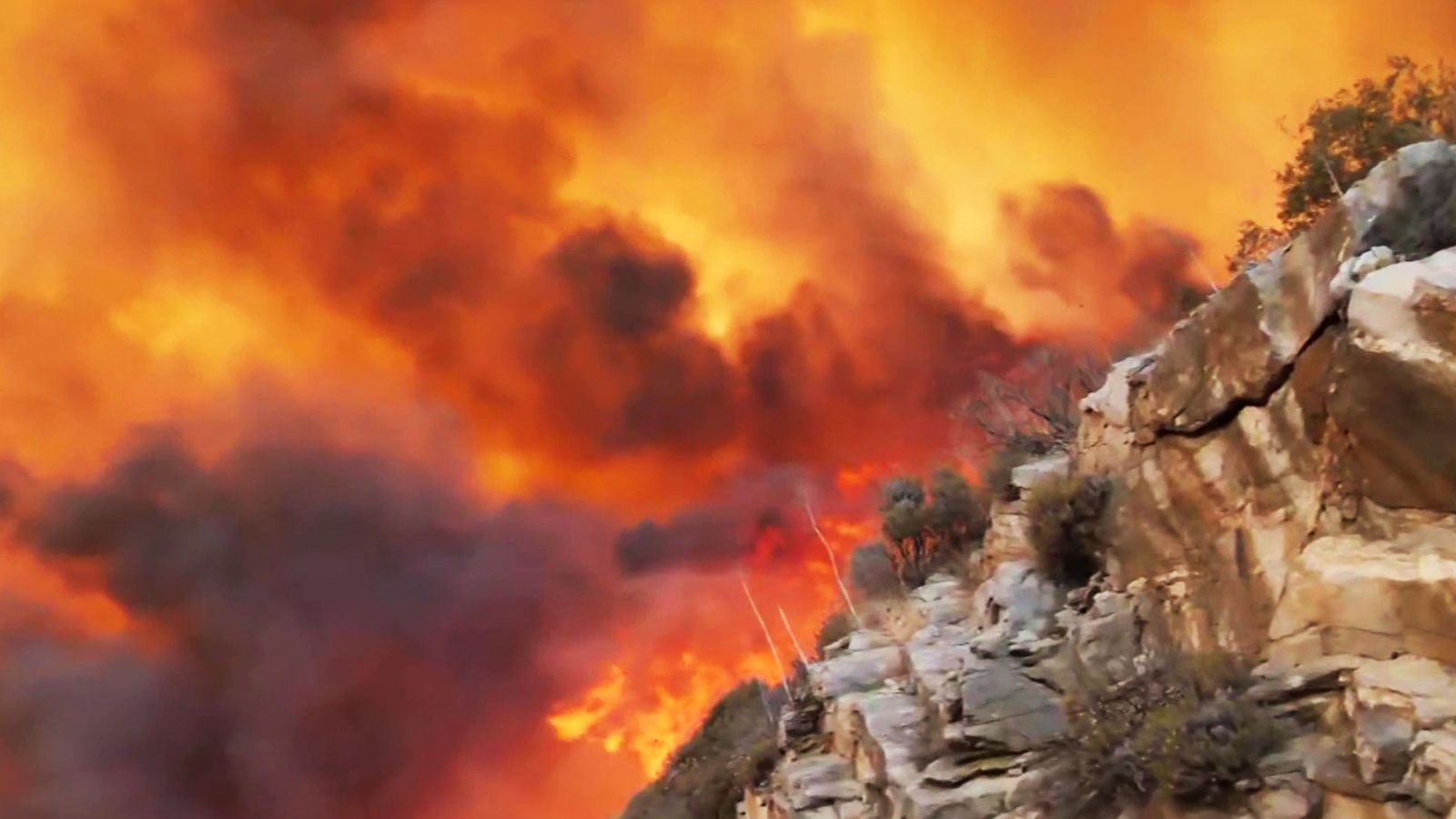Unprecedented wildfires have broken out across Italy, Turkey and Greece due to rising temperatures caused by climate change.
Wildfires are common in southern Europe during the summer months, but extreme weather has made 2021 an especially bad year.
France and Spain experienced around 200 weekly wildfires during July, compared with an respective average of 38 and 81 in the preceding 12 years.
Wildfires have intensified this year driven by the high temperatures and drought that have plagued Europe since the start of the summer.
In the most recently affected countries, Turkey, Italy and Greece, there have been between two and five times as many wildfires during July as there were in the period between 2008 and 2020.
The devastation in Turkey over the recent weeks shows the scale of the environmental impact – over 150,000 hectares of land has been burnt at the start of August, which was more than nine times the average over the preceding 12 years.
These wildfires can have devastating consequences for human and ecological health, says Professor Dann Mitchell, a professor of climate science at the University of Bristol.
He said: “All the burnt material creates high levels of particles in the air, which cause significant respiratory problems, and visibility problems. On top of that, the loss of ecosystems can undo hundreds of years of nature’s work.”
What has caused a surge in wildfires?
Europe is experiencing the worst heatwave in a decade because of a heat dome – a high-pressure bubble trapping heat within an area.
This has caused temperatures to rise above 40C (104 F) in many parts of southern Europe and created the perfect conditions for wildfires to run rampant.
Professor Mitchell said: “Wildfires result from a combination of weather types, but the key ingredients are hot temperatures, dry conditions, and strong winds.
“In Greece and Turkey, the combined extreme heat wave and drought conditions have created the perfect storm.”
This year has also seen historically low levels of rainfall for much of southern Europe. In Hellinikon in Greece, for example, it has been below the five-year average for the entirety of 2021.”
In the coming years, more extreme weather patterns could mean that wildfires become a problem for other parts of Europe as well, says Professor Mitchell.
“In the winter, there is expected to be more rain, causing vegetation to boom. In the summer, there is expected to be less rain in many parts of Europe. So in the future we may have more vegetation which is drier, therefore leading to more fuel for the wildfires.
“As the climate warms, we expect to see these major wildfire events occurring more and more frequently in the mid- and north of Europe.”
The Data and Forensics team is a multi-skilled unit dedicated to providing transparent journalism from Sky News. We gather, analyse and visualise data to tell data-driven stories. We combine traditional reporting skills with advanced analysis of satellite images, social media and other open source information. Through multimedia storytelling we aim to better explain the world while also showing how our journalism is done.






















